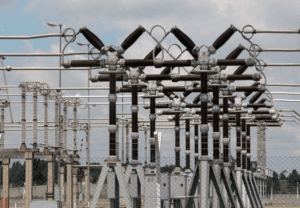Deficient power sector: An economic nightmare that must be fixed
Collapse of the national grid with its associated nationwide blackout has been one common narrative factored in the deficient architecture of Nigeria’s power sector. Recently, nationwide blackouts have been taking reflections back to back. The poor attention to address the age-long problem calls for concern.
Amidst discourse over the insufficiency, the Federal Government, had last week attributed the recent recurring spate in national power grid system collapses to poor generation by generation companies (GenCos), attacks on transmission towers, and low water levels at hydro power plants. The Minister of Power, Abubakar Aliyu, at the Nextier Power Dialogue, in Abuja, had said government effort to expand the grid has also been frustrated by communities who deny right of way to transmission projects.
It is apparent the problems with Nigeria’s imbecilic power sector have not been hidden, neither do they have much to do with the inability to identify the problems, but how to galvanise and coordinate implementation of agenda to get the desideratum. Experts’ opinion seem not to suffer concourse on the problems bewildering the productive profile of the power sector. Reflecting on some of the challenges, the Chairman/CEO, Nigerian Electricity Regulatory Commission (NERC) Sanusi Garba, had last week observed that, “Many factors are responsible for system collapse in Nigeria. They include low generation, which can be as a result of low water supply and inadequate gas supply that lead to high fluctuation in the process. This was rampant in the past because there was no strong commitment or agreement among the major stakeholders, but now we have caused all parties to go into an agreement that would bring about stability. The generating companies, Transmission Company of Nigeria (TCN) and the distribution companies, have now agreed not only to generate, but also to transmit and distribute to consumers. Consequently, we are very optimistic to a minimum of 5,000 megawatts, MW, would be supplied to consumers from July 1, 2022.”
The Regional Director for Infrastructure, Africa West and East, World Bank, Mr. Ashish Khanna, observing the power deficits leaving many people in Nigeria without access to energy more than in any part of the world, had noted that the country needed about $100 billion in the next 10 years to bridge the infrastructure gap in the power sector. It is mindboggling that the Country with the high demands of the economy still gropes under the shadow of generating below 3,000MW.
It is glaring that from all ends of the structural organs of the sector, deficiencies of various reflections are, in their disturbing light, taking course to offset the entire working fabrics of the sector. Just as the problems are well pronounced, solutions to the deficiencies cannot be said to be out of sight, but the political will to herald the push towards coordinating processes to drive the course of concerns from the ebb of deficiencies by addressing the strains, moving towards the height of achieving the desideratum.
Declaration of commitment has always been with the Government, but the firmness to drive same with concerted push has been lagging. The impacts of the imbecilic unreliability of the power sector hold a very negative turn among the factors that define the unfavourable harsh character of the business environment in the Country. The cost of sourcing energy in the Country has remained one of the most disturbing to manufacturers and small businesses. The overall impacts, apparently, transcend the facial interpretation given to it. It is pertinent to note that developing a reliable power sector on which the economy can rest its oars for business to blossom is pertinent. The strings of clustered challenges, which power occupies a bugging part of, demand critical attention, particularly now when the pressure of the wobbling profile of the economy, demands, largely, the effective working of such sector as power, which has too long been drenched in inefficiency and inconsistencies – a nightmare to the economy that must be fixed.




